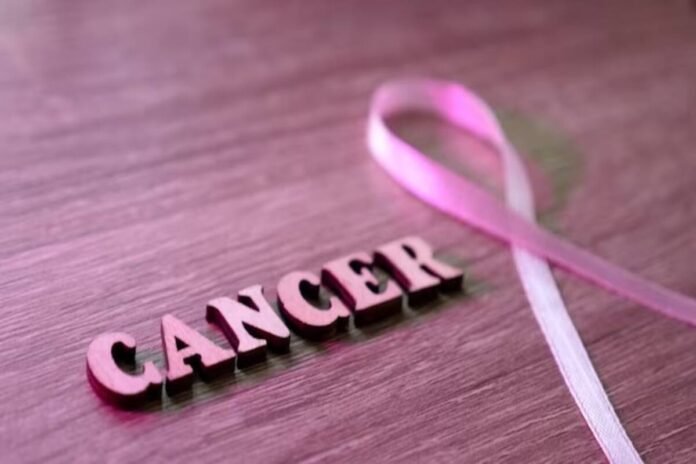As the world commemorates World Health Day on April 7, 2024, the focus remains on promoting healthier living and raising awareness about pressing health issues. Among these, cancer continues to be a significant concern, with its prevalence and impact felt globally. However, experts emphasize that certain lifestyle changes can help reduce the risk of cancer and enhance overall well-being.
- Maintain a Balanced Diet: Adopting a diet rich in fruits, vegetables, whole grains, and lean proteins can provide essential nutrients and antioxidants that support the body’s natural defense mechanisms against cancer.
- Limit Processed Foods and Sugary Beverages: Reducing consumption of processed foods high in saturated fats, sugars, and artificial additives can lower cancer risk. Similarly, minimizing intake of sugary beverages can help maintain a healthy weight and decrease the likelihood of developing certain cancers.
- Stay Active: Regular physical activity not only helps maintain a healthy weight but also reduces the risk of developing various types of cancer. Aim for at least 30 minutes of moderate exercise most days of the week to reap the benefits.
- Avoid Tobacco and Limit Alcohol Consumption: Tobacco use is a leading cause of cancer worldwide, so quitting smoking and avoiding exposure to secondhand smoke are crucial steps in cancer prevention. Additionally, limiting alcohol consumption can lower the risk of developing cancers of the mouth, throat, liver, and breast.
- Protect Your Skin from Sun Exposure: Practicing sun safety, such as wearing sunscreen, protective clothing, and seeking shade during peak sunlight hours, can help prevent skin cancer. Regularly checking your skin for any changes or unusual moles is also essential for early detection.
- Prioritize Mental Health: Chronic stress and poor mental health can weaken the immune system and increase susceptibility to various diseases, including cancer. Incorporating stress-reducing activities such as meditation, mindfulness, and regular relaxation techniques can support overall health and well-being.
- Get Vaccinated: Certain vaccinations, such as those for human papillomavirus (HPV) and hepatitis B, can prevent infections that are linked to an increased risk of developing specific types of cancer. Consult with healthcare professionals to ensure you are up to date on recommended vaccinations.
- Screen Regularly: Participating in cancer screening programs can aid in the early detection and treatment of various cancers. Regular screenings for breast, cervical, colorectal, and prostate cancers, among others, are essential for individuals of appropriate age and risk level.
- Practice Safe Sex: Limiting the number of sexual partners and using protection during sexual activity can reduce the risk of sexually transmitted infections (STIs) that are associated with certain cancers, including cervical and anal cancers.
- Stay Informed and Advocate for Health: Educating oneself about cancer risk factors, symptoms, and prevention strategies empowers individuals to make informed decisions about their health. Additionally, advocating for policies and initiatives that promote cancer prevention and access to healthcare can contribute to broader public health efforts.
- Maintain a Healthy Weight: Obesity is a significant risk factor for various types of cancer, including breast, colon, and kidney cancer. Striving to achieve and maintain a healthy weight through a combination of balanced diet and regular physical activity can help reduce the risk of developing these cancers.
- Prioritize Sleep: Quality sleep is essential for overall health and well-being, including cancer prevention. Aim for 7-9 hours of uninterrupted sleep each night to allow your body to repair and regenerate properly. Poor sleep habits have been linked to an increased risk of certain cancers, so establishing a consistent sleep routine is crucial.
- Stay Hydrated: Drinking an adequate amount of water throughout the day is essential for maintaining optimal health and supporting various bodily functions. Adequate hydration can help flush out toxins from the body, potentially reducing the risk of certain cancers, such as bladder cancer.
- Practice Food Safety: Ensuring food safety practices, such as proper storage, handling, and cooking of food, can help prevent foodborne illnesses caused by bacteria, parasites, and other pathogens. Chronic infections resulting from contaminated food can increase the risk of certain cancers, so practicing food safety is essential.
- Engage in Regular Health Check-ups: Regular health check-ups with your healthcare provider can help monitor your overall health and detect any potential health issues, including cancer, at an early stage. Be proactive about scheduling routine screenings and examinations based on your age, gender, and individual risk factors.
By incorporating these additional lifestyle tweaks into your daily routine, you can further reduce your cancer risk and enhance your overall health and well-being. Remember that small changes can make a significant difference in promoting a healthier lifestyle and reducing the burden of cancer worldwide.

